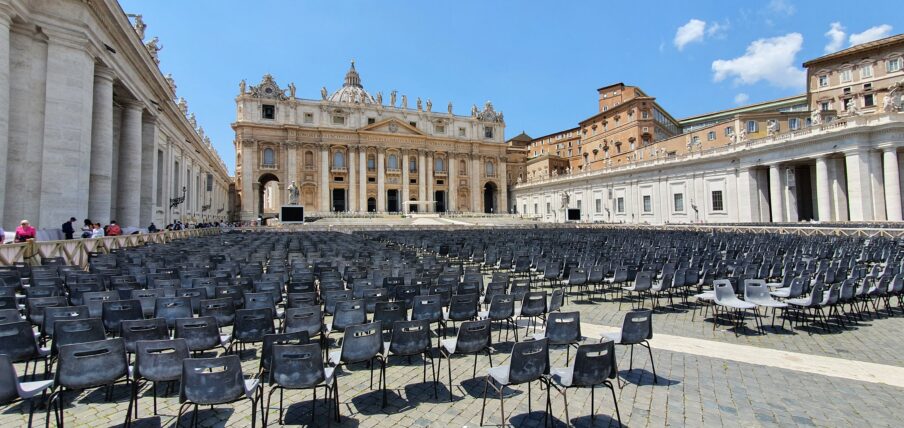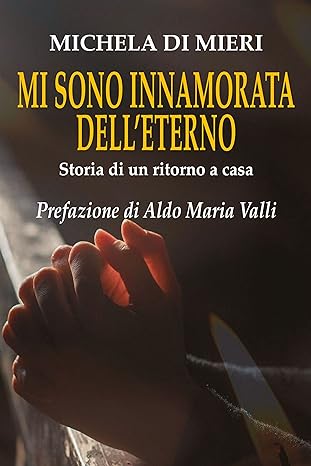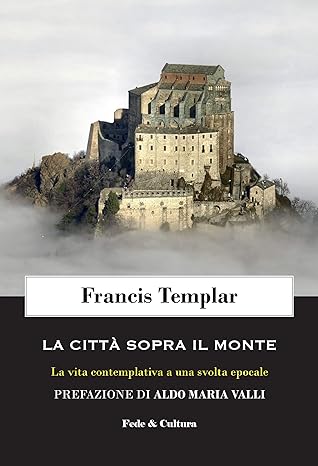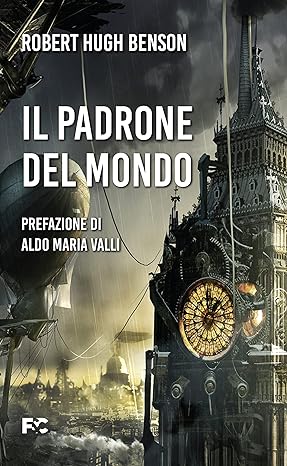
Questions in the Margins of Archbishop Vigano’s Statements
by Fabio Battiston
I have just finished reading at Duc in altum the interview released by Archbishop Viganò to Michael J. Matt for the Catholic Identity Conference. I do not intend to comment here on the tone and content of the Archbishop’s statements. His affirmations, centering on certain questions regarding the contrast between substance and interpretation of the Second Vatican Council, are always in harmony with my vision of the great question of “the Church.”
I would like instead to offer a more general consideration about the “state” in which the barque of Peter finds herself today, taking as a paradigmatic example the rapport between Archbishop Viganò and the current government of the Catholic Church. A Church which he fights against, but which at the same time he continues to be a part of. Several questions therefore come to mind, prescinding from the merit of specific positions: what would have happened in past centuries in the face of a disagreement of such magnitude between a dignitary of Holy Mother Church and the figure (magisterial, doctrinal, and pastoral) of the pope in office? What consequences would have derived from this with respect to, on the one hand, the intention of the “rebel” to remain within the riverbed of Mother Church, and on the other hand, the measures that would have been used by the institutional power in defense of its own prerogatives? History has given us numerous examples of this sort (I limit myself to those completely internal to the Church without touching on the clashes between political and ecclesiastical powers). These conflicts almost always resulted in excommunications, people leaving the church, schisms, condemnations or reciprocal accusations of heresy publicly resulting in open and serious contradictions. I want to say that the Church on all of these occasions demonstrated – independently of the rights and wrongs of the positions being debated – a strength, a vitality, and a defense of principles, as well as a response to errors, from which she has always emerged stronger and more resilient.
But instead, what is happening in the past few years? Limiting ourselves to the “Viganò affair,” we see an important prelate who – without mincing words or using diplomatic tactics – treats the reigning Pope (an adjective that is particularly unwelcome by the current tenant of Santa Marta) as an envoy of Satan. Neo-paganism, apostasy, and pantheism are the additional side charges. The same Archbishop maintains, with a wealth of arguments supporting his position, that the election of Bergoglio was a totally invalid act sanctioned by a conclave in the pay of the dominant Masonic world powers (the famous “Deep State”). All this with the amplification of the omnipresent apparatus of the mass media. On the other hand, we are stunned as we note the behavior of a Pope who seems to completely ignore the gravity and reiteration of these accusations. We have the same sadness when we notice as well the silence of all those who in 2013 voted for the Archbishop of Buenos Aires. These attitudes however are not isolated: how can we fail to mention in this regard the deafening papal silence in the face of the dubia issued by some cardinals about various points of the encyclical letter Amoris Laetitia. I ask: What kind of Church is this? Is it acceptable that those who utter very grave accusations against the Pope consider it absolutely logical, I would say almost normal, to continue to profess their faith within an institution they consider to be demonic? And that a Pope with his cardinals shows absolute indifference towards those who attack the Vicar of Christ on earth in this way? And to be clear – the question about whether or not to stay within this Church, which I offer to Archbishop Viganò, is also very personal to me and all those who have felt for years now the discomfort of living within an ecclesial context in which they find it increasingly difficult to recognize themselves. But it is above all the silence of the hierarchy, beginning with the highest office, that tastes monstruous. It is as if, in a family, the children would daily see their mother being accused of immorality and dishonesty and ignorance. At the same time, however, it is as if they would also observe with dismay that this woman not only does not react in the face of such infamies but she even shows a total indifference to what is being said against her. How would these children feel?
I realize that I have asked, and also asked myself, numerous questions. Questions which I do not know how to answer and which feed, day by day, a feeling of restlessness about what the near future is for this Church and for those of us who – amidst our personal doubts, indecisions, fears, and sins – are still part of her.
Saint Tascius Cecilius Cyprianus, Bishop of Carthage in the 3rd century A.D., wrote in his letter to Pope Stephen II his famous words Extra Ecclesiam nula salus (outside the Church there is no salvation), which later became dogma. This principle remains the north star, but I cannot avoid asking, in these opening years of the third millennium: outside of “which” Church?
First published at Duc in altum



